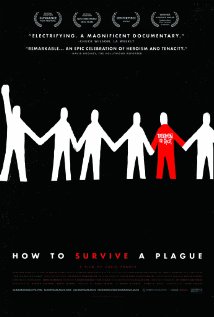How to Survive a Plague
How to Survive a Plague is a critical topic that encompasses strategies, historical contexts, and modern approaches to dealing with pandemics and epidemics that have threatened humanity throughout history. This article aims to provide a comprehensive overview of the methods and practices that can be employed to survive a plague, drawing on historical examples and current health guidelines.
Historical Overview[edit | edit source]
Throughout history, humanity has faced numerous plagues that have had significant impacts on societies and populations. Notable examples include the Black Death in the 14th century, the Spanish Flu pandemic of 1918, and more recently, the COVID-19 pandemic. Each of these events has shaped human responses to disease outbreaks, leading to advancements in public health, vaccination, and epidemiology.
Preventative Measures[edit | edit source]
One of the key strategies in surviving a plague is the implementation of preventative measures. These can include:
- Quarantine and social distancing to limit the spread of disease.
- The use of personal protective equipment (PPE), such as masks and gloves.
- Vaccination programs to build immunity within the population.
- Hygiene practices, including regular handwashing and the use of sanitizers.
Medical Interventions[edit | edit source]
Advancements in medicine have provided several interventions that can be crucial in surviving a plague. These include:
- The development of antiviral drugs and antibiotics to treat infections.
- Intensive care units (ICU) and ventilators to support patients with severe symptoms.
- Contact tracing to identify and isolate cases to prevent further spread.
Public Health Policies[edit | edit source]
Effective public health policies are essential in managing and surviving a plague. These policies can include:
- The establishment of health surveillance systems to detect and monitor outbreaks.
- Public education campaigns to inform the population about preventative measures and symptoms.
- International cooperation to share information, resources, and strategies for managing the disease.
Community Support[edit | edit source]
Community support and solidarity play a vital role in surviving a plague. This can involve:
- Volunteering to support healthcare systems and vulnerable populations.
- Donating to charities and organizations involved in disease prevention and treatment.
- Spreading accurate information and combating misinformation about the disease.
Conclusion[edit | edit source]
Surviving a plague requires a multifaceted approach that includes preventative measures, medical interventions, effective public health policies, and community support. By learning from historical plagues and applying modern scientific knowledge, humanity can better prepare for and respond to future outbreaks.
Search WikiMD
Ad.Tired of being Overweight? Try W8MD's physician weight loss program.
Semaglutide (Ozempic / Wegovy and Tirzepatide (Mounjaro / Zepbound) available.
Advertise on WikiMD
|
WikiMD's Wellness Encyclopedia |
| Let Food Be Thy Medicine Medicine Thy Food - Hippocrates |
Translate this page: - East Asian
中文,
日本,
한국어,
South Asian
हिन्दी,
தமிழ்,
తెలుగు,
Urdu,
ಕನ್ನಡ,
Southeast Asian
Indonesian,
Vietnamese,
Thai,
မြန်မာဘာသာ,
বাংলা
European
español,
Deutsch,
français,
Greek,
português do Brasil,
polski,
română,
русский,
Nederlands,
norsk,
svenska,
suomi,
Italian
Middle Eastern & African
عربى,
Turkish,
Persian,
Hebrew,
Afrikaans,
isiZulu,
Kiswahili,
Other
Bulgarian,
Hungarian,
Czech,
Swedish,
മലയാളം,
मराठी,
ਪੰਜਾਬੀ,
ગુજરાતી,
Portuguese,
Ukrainian
Medical Disclaimer: WikiMD is not a substitute for professional medical advice. The information on WikiMD is provided as an information resource only, may be incorrect, outdated or misleading, and is not to be used or relied on for any diagnostic or treatment purposes. Please consult your health care provider before making any healthcare decisions or for guidance about a specific medical condition. WikiMD expressly disclaims responsibility, and shall have no liability, for any damages, loss, injury, or liability whatsoever suffered as a result of your reliance on the information contained in this site. By visiting this site you agree to the foregoing terms and conditions, which may from time to time be changed or supplemented by WikiMD. If you do not agree to the foregoing terms and conditions, you should not enter or use this site. See full disclaimer.
Credits:Most images are courtesy of Wikimedia commons, and templates Wikipedia, licensed under CC BY SA or similar.
Contributors: Prab R. Tumpati, MD

